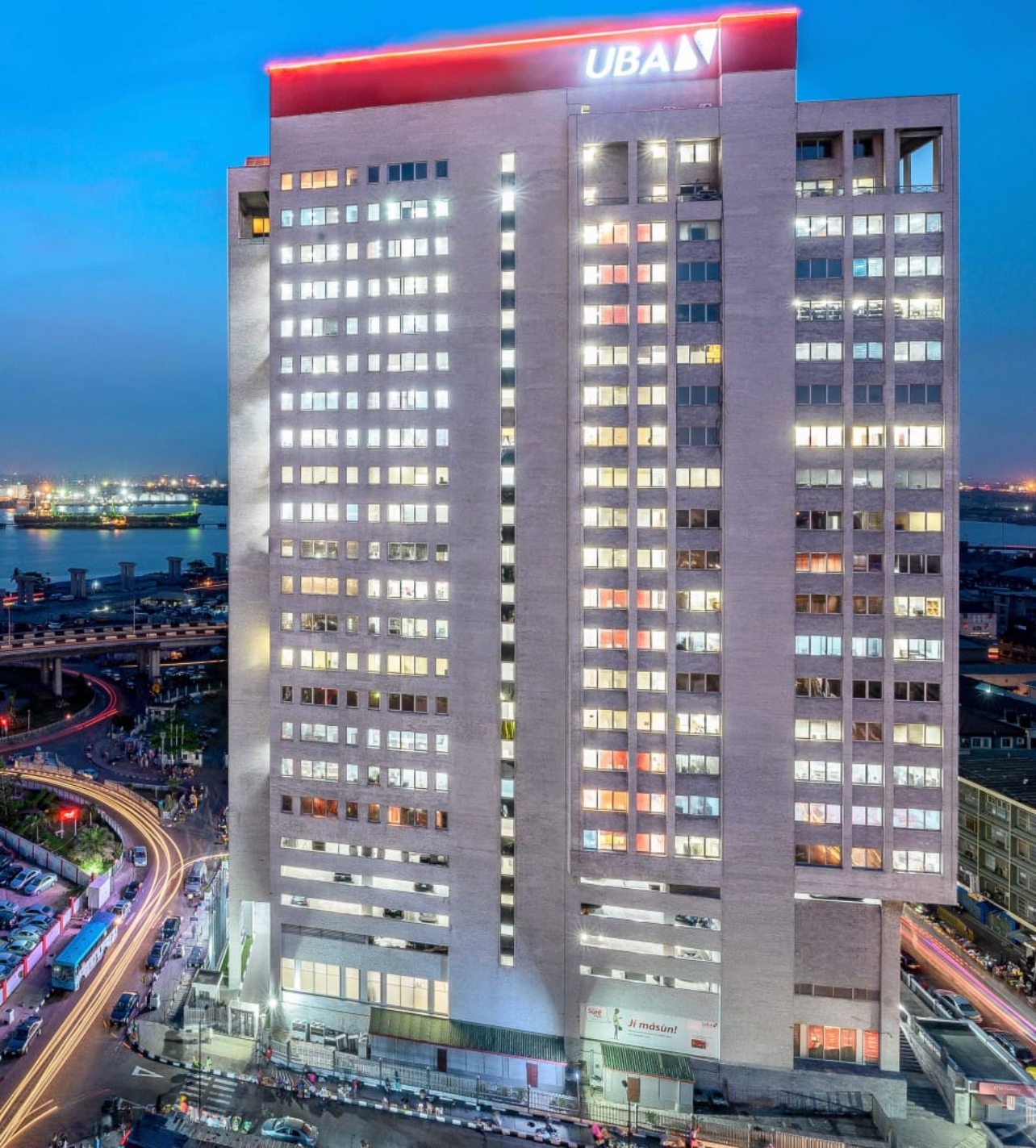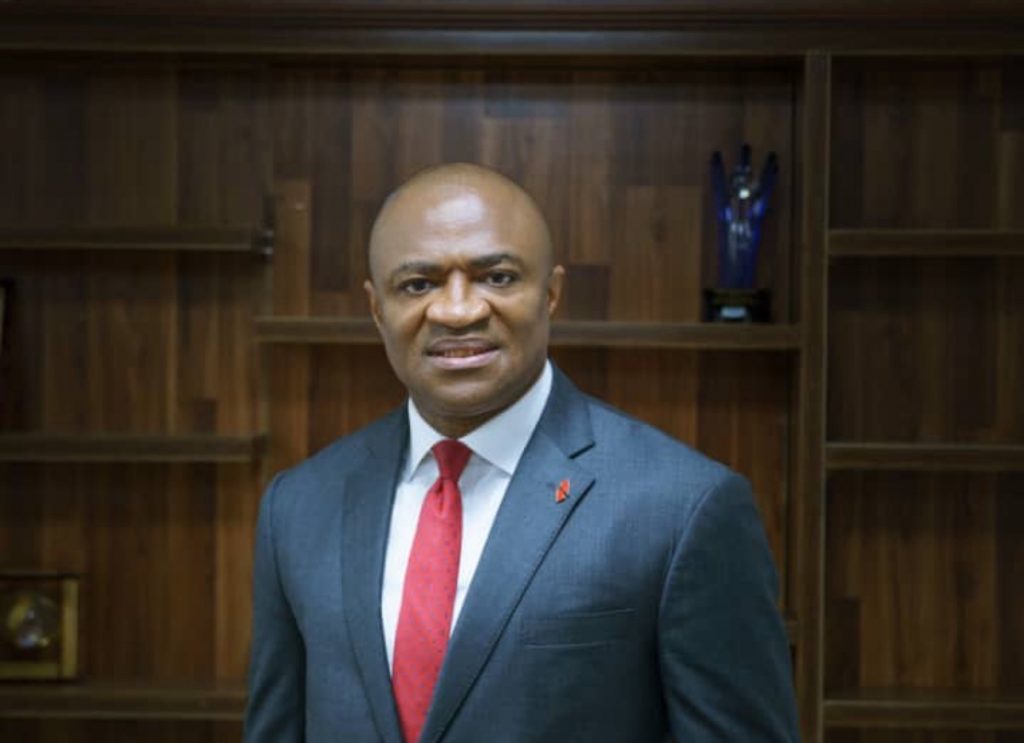brand
Breaking : CBN bows to pressure lifts ban on cement, 42 items and raises dollar supply

 The Central Bank of Nigeria has said it is raising dollar supply in the foreign exchange market, just as it also lifted the ban on 43 items that were previously not qualified for forex at the official market.
The Central Bank of Nigeria has said it is raising dollar supply in the foreign exchange market, just as it also lifted the ban on 43 items that were previously not qualified for forex at the official market.
The decision came after the naira tumbled to 1,050/$ at the parallel market on Thursday, following pressure from international organisations and experts.
The CBN has finally succumbed to pressure and lifted the ban on the importers of 43 items restricted from accessing foreign exchange on its official platform.
It disclosed this in a statement titled, ‘CBN restates commitment to boost liquidity in forex market’, signed by the bank’s Director, Corporate Communications, Isa AbdulMumin, on Thursday.
“Importers of all the 43 items previously restricted by the 2015 circular referenced TED/FEM/FPC/GEN/01/010, and its addendums are now allowed to purchase foreign exchange in the Nigerian foreign exchange market,” the statement said.
The apex bank said it would continue to promote orderliness and professional conduct by all Nigerian foreign exchange market participants to ensure market forces determined exchange rates on a willing buyer – willing seller principle.
It added, “The CBN reiterates that the prevailing foreign exchange rates should be referenced from platforms such as the CBN website, FMDQ and other recognised or appointed trading systems to promote price discovery, transparency, and credibility in the FX rates.
“As part of its responsibility to ensure price stability, the CBN will boost liquidity in the Nigerian foreign exchange market by interventions from time to time. As market liquidity improves, these CBN interventions will gradually decrease.”
The statement said the CBN was committed to accelerating efforts to clear the FX backlog with existing participants and would continue dialogue with stakeholders to address the issue.
It stated, “The CBN has set as one of its goals the attainment of a single FX market. Consultation is ongoing with market participants to achieve this goal. Participants and the general public are to be guided by the above.”
Meanwhile, some Bureau de Change operators who spoke to The PUNCH on Thursday said the dollar traded between 1,025/$ and 1,050/$ in Lagos and Abuja.
A BDC operator in Lagos, Abguadi, said, “The dollar was bought at N1,025/$ and sold at N1,035/$ on Thursday.”
According to another BDC operator, Abdul, “We bought dollar for N1,015/$ and sold it at N1,035/$. The price has been rising.”
A BDC operator, Yusuf, said, “Some BDCs don’t even have access to the forex. Today, we bought the dollar and sold at 1,035/$ and 1,050/$.”
Another BDC operator in Abuja, Ibrahim Yahu, said as of the close of business on Thursday, they were buying at N1.030/$ and selling at 1,045/$.
A forex dealer identified simply as Suraju said, ‘’I buy at N1,030/$ and sell N1,035/$; It is just a difference of N5.’’
However, on the Investor & Exporter forex window, the naira appreciated slightly after closing at 759.20/$ from 766.41/$ on Wednesday.
But the new Governor of the Central Bank of Nigeria, Olayemi Cardoso, also says the new leadership team will review the CBN foreign exchange market policies, corporate governance practices, and monetary policies to reposition the apex bank to achieve its core mandates.
Already, he said the new team members, who resumed fully at the bank a few weeks ago following their confirmation by the National Assembly, were carrying out a comprehensive assessment of the challenges facing the central bank.
According to him, the ongoing assessment of the bank will lead to tweaking or jettisoning of some policies as part of a wide-ranging programme to reform the bank as a catalyst for economic growth and development.
This was contained in a document obtained by our correspondent on Thursday.
The document was titled, ‘Preliminary assessment of challenges facing the Central Bank of Nigeria.’
In the document, Cardoso outlined the challenges facing the CBN, introduced high-level proposals to address reformation challenges while examining the role of a refocused central bank in supporting the economic agenda of President Bola Tinubu.
In the paper, the new CBN governor raised several questions, ranging from how corporate governance failures in the CBN could be addressed, how public and financial systems’ stakeholder confidence could be restored in the autonomy and integrity of the CBN, as well as the need to refocus the central back to its core functions.
He also harped on what should be put in place to revert to evidence-based monetary policies, including the discontinuation of unorthodox monetary policies and foreign currency management, unorthodox use of Ways and Means spending, and developing control limits in the use of Ways and Means in financing public sector deficit.
On the backlog of FX demand, Cardoso emphasised the need for creative financing options for clearing the short to medium-term backlog.
The new central governor also plans to limit the CBN’s fiscal side interventions while proposing responses to addressing inflation and price stability issues.
Cardoso said, “These problem statements need in-depth review by the new Central Bank leadership team to determine what mechanisms are currently working, what can be tweaked or dispensed with and what new tools need to be introduced.”
On how the CBN can be refocused to support economic growth, he said, “The economic policy proposals of the administration identify a set of fiscal reforms and growth targets that will achieve $1.0tn GDP within eight years. In reviewing selected BRICS and MINT countries with large populations and similar developmental characteristics as Nigeria, it is interesting to identify macroeconomic indices that point to Nigeria’s economic trajectory, given the faithful implementation of the proposed economic reforms. In economies bigger than $1.0tn, these indicators include moderate inflation, sizable foreign reserves, and the capacity to rebound from a cyclical economic downturn quickly.”
He added, “Much has been made of past CBN forays into development financing, such that the lines between monetary policy and fiscal intervention have blurred. In refocusing the CBN to its core mandate, there is a need to pull the CBN back from direct development finance interventions into more limited advisory roles that support economic growth.”
He listed the advisory roles as the CBN acting as a catalyst in the propagation of specialised institutions and financial products that support emerging sectors of the economy, facilitating new regulatory frameworks to unlock dormant capital in land and property holdings, accelerating access to consumer credit and expand financial inclusion to the masses; de-risking instrumentation to increase private sector investment in housing, textiles and clothing, food supply chain, healthcare, and educational supplies; and exercising the CBN’s convening power to bring critical multilateral and international stakeholder participation in government and private sector initiatives.
In conclusion, Cardoso said, “It must be emphasised that CBN does not have a magic wand that can be waved at the current economic challenges. The problems facing the bank are large and complex. However, with focused leadership and sustained reforms, it is expected that over time, the country will see gains open economic spaces, attract new investments, create employment, and give our hardworking and talented compatriots an opportunity for a more prosperous future”.
Manufacturers back FG
Speaking exclusively with The PUNCH, the Director-General of the Manufacturers Association of Nigeria, Segun Ajayi-Kadir, commended the decision made by the CBN to lift the ban on imports of the blacklisted items.
According to him, about 200 association members have been adversely affected by the ban that Emefiele imposed.
He said, “We commend the CBN Governor for taking a very pragmatic and far-sighted decision on this matter. You will recall that when the last CBN governor imposed this list of items that are not valid for forex, the association indicated that it was not consulted, and that it was ill-advised. It was ill-advised in that the CBN did not correctly assess the relevance of those items.
“Some of those items represent raw materials that are not locally available, and when that was done, it put more than 200 of our members in jeopardy. It put their survival in jeopardy. Many of them suffered unprecedented low returns in their activities. We indicated that the affected operators needed to be consulted.”
Ajayi-Kadir, who warned that the apex bank had no business meddling in issues bordering on fiscal policy, demanded more reviews to be done to remove more bottlenecks that were imposed on manufacturers by the previous CBN leadership.”
Reacting, the President of the All Farmers Association of Nigeria, Kabir Ibrahim, said removing the forex ban on the items might not influence the seamless importation of food as countries were battling to achieve food sufficiency.
In a telephone interview, the president noted that the festive period would prove effective if the new policy is appropriate or not.
He said, “It is premature to say what will happen as this liberalisation does not mean seamless importation of goods and services as the entire global food system is going through challenges.
“There is no magic wand to stave off the current food inflation rate in Nigeria and it is pretty unwise to purchase grains. For instance, it will be at cross-purposes with any food pricing protocol.
“We should tarry awhile before making definite forecasts as to what will happen between now and Christmas.”
Speaking with The PUNCH, the Chief Executive Officer of the Centre for Promotion of Private Enterprise, Dr Muda Yusuf, said it was a welcome decision of the CBN to discontinue the forex exclusion policy on the 43 items. It is a move in the right direction. It is part of the policy normalisation process.
Yusuf said, “The exclusion of the 43 items was one of the drivers of distortions in the forex market. The exclusion of the items also contributed to the persistent divergence in rates between the official window and the parallel market.
“The exclusion also conflicted with extant trade policy as the items were not under import prohibition in the first place. It was an example of lack of policy coordination under the previous administration.”
Yusuf further stated that the new directive would improve transparency and disclosures in foreign exchange transactions.
Meanwhile, he noted that the CBN should avoid market suppression tendencies, especially outside the I&E window.
He stressed that all policy impediments to forex inflows should be removed.
He stated, “The fiscal authorities should continually monitor the economic landscape to shape the character of fiscal policy measures to regulate imports in line with comparative advantage principles.”
Meanwhile, he added, “We need to worry about the risk of an import surge and also need to upscale the use of fiscal policy measures to boost domestic production and productivity.”
The President, Association of Bureaux De Change Operators of Nigeria, Dr Aminu Gwadabe, said generally, it was a booster aimed at boosting confidence and eliminating uncertainties in the market.
He said, “It entails reforms, compliance with official market rates and liquidity interventions. We at ABCON will continue to partner with the apex bank in achieving its set goals.
“The unbanning of the 43 items will deepen the market and stimulate bilateral trade and inward-looking industrialisation strategies.”
He added, “My call to the CBN is to ensure speedy implementations of the policies. To enhance the buffers, the CBN should pursue a paradigm shift from demand to supply measures to boost the needed liquidity in the market.”
Gwadabe said the CBN should emphasise intervention in the retail end sector where the spikes were most pervasive through the effective pass-through of the BDCs to close the gaps between the official and unofficial exchange rates.
brand
GTCO Proudly Headlines the NPA Lagos International Polo Tournament as Main Sponsor— Championing Great Experiences and Heritage


Guaranty Trust Holding Company Plc (GTCO Plc) (NGX: GTCO; LSE: GTCO), one of Africa’s leading financial services groups, is proud to announce its continued support as the main sponsor of the NPA Lagos International Polo Tournament, one of Africa’s oldest and most prestigious sporting events. The 2026 edition will be held at the Lagos Polo Club, Ikoyi, from Tuesday, January 27 to Sunday, February 15, bringing together top local and international polo teams and spectators from across the continent and beyond.
The 2026 NPA Lagos International Polo Tournament will feature top‑tier teams competing for major prizes, including the Majekodunmi Cup, Independence Cup, Open Cup, Silver Cup and Low Cup, among others. Guests can expect a fusion of thrilling equestrian action, polo-inspired lifestyle showcase, and curated hospitality experiences. The event will also be livestreamed, allowing audiences online to share in the excitement and spectacle.
Commenting on GTCO’s role as main sponsor of the Lagos International Polo Tournament, Segun Agbaje, Group Chief Executive Officer, said: “This tournament, one of the oldest in Africa, celebrates not only the noble sport of polo but the values we hold dear as a brand: teamwork, discipline, fair play, and a commitment to excellence. Beyond the field, it showcases Nigeria and Africa to a global audience, reinforcing the continent’s place on the world stage. Our longstanding sponsorship of the NPA Lagos International Polo Tournament reflects our conviction that sport can amplify opportunity, foster connections, and deliver world-class experiences for all.”
The NPA Lagos International Polo Tournament has long been celebrated not only for its thrilling competition and equestrian excellence but also for its rich heritage and cultural resonance within Africa’s sporting tradition. GTCO’s sponsorship embodies the Group’s commitment to creating platforms that unite communities and drive social impact across diverse audiences.
brand
Fidelity Bank appoints Onwughalu as Chairman following completion of Chike-Obi’s tenure

 Tier one lender, Fidelity Bank Plc, has announced the completion of the tenure of Mr. Mustafa Chike-Obi as Chairman of its Board of Directors effective December 31, 2025, and the appointment of Mrs. Amaka Onwughalu as the new Chairman of the Board, effective January 1, 2026.
Tier one lender, Fidelity Bank Plc, has announced the completion of the tenure of Mr. Mustafa Chike-Obi as Chairman of its Board of Directors effective December 31, 2025, and the appointment of Mrs. Amaka Onwughalu as the new Chairman of the Board, effective January 1, 2026.
The board transitions are in alignment with the Bank’s policy and have been communicated to the Central Bank of Nigeria, the Nigerian Exchange Group, and other stakeholders.
Under Mr. Chike-Obi’s leadership, Fidelity Bank repaid its Eurobond, completed the first tranche of its public offer and rights issue that were oversubscribed by 237 percent and 137.73 percent respectively, expanded internationally to the United Kingdom, and received improved ratings from various agencies amongst a long list of achievements. His tenure also saw the Bank strengthen its capital position, record steady growth in customer deposits and total assets, deepen its digital banking capabilities, and enhance its corporate and investment banking proposition. The bank equally made notable progress in governance, risk management, and operational efficiency, all of which contributed to strengthened market confidence and the Bank’s sustained upward performance trajectory.
Reflecting on his tenure, Mr. Mustafa Chike-Obi said, “It has been a privilege to serve as Chairman of Fidelity Bank. The dedication of our Board, management, and staff has enabled us to reach significant milestones. I am confident that the Bank will continue to thrive and deliver value to all stakeholders.”
Mrs. Amaka Onwughalu’s appointment marks a new chapter for Fidelity Bank. She joined the Board in December 2020 and has chaired key committees. With over 30 years of banking experience, including executive roles at Mainstreet Bank Limited and Skye Bank Plc. She holds degrees in Economics, Corporate Governance, and Business Administration, and has attended executive programmes at global institutions. Mrs. Onwughalu is a Fellow of several professional bodies and has received awards for accountability and financial management
“I am honoured to lead the Board of Fidelity Bank at this exciting time. Our recent achievements have set a strong foundation for continued growth. I look forward to working with my colleagues to drive our strategy and deliver sustainable value,” commented Mrs. Onwughalu.
Ranked among the best banks in Nigeria, Fidelity Bank Plc is a full-fledged Commercial Deposit Money Bank serving over 9.1 million customers through digital banking channels, its 255 business offices in Nigeria and United Kingdom subsidiary, FidBank UK Limited.
The Bank is a recipient of multiple local and international Awards, including the 2024 Excellence in Digital Transformation & MSME Banking Award by BusinessDay Banks and Financial Institutions (BAFI) Awards; the 2024 Most Innovative Mobile Banking Application award for its Fidelity Mobile App by Global Business Outlook, and the 2024 Most Innovative Investment Banking Service Provider award by Global Brands Magazine. Additionally, the Bank was recognized as the Best Bank for SMEs in Nigeria by the Euromoney Awards for Excellence and as the Export Financing Bank of the Year by the BusinessDay Banks and Financial Institutions (BAFI) Awards.
brand
UBA Group Dominates 2025, Banker Awards, Emerges Africa’s Bank of the Year, For Third Time in Five Years


 ….Wins Best Bank in Nine out of 20 African Subsidiaries
….Wins Best Bank in Nine out of 20 African Subsidiaries
Africa’s Global Bank, United Bank for Africa (UBA) Plc, has once again, reaffirmed its leadership as one of the continent’s most innovative and resilient financial institutions, as the bank has, for the third time in five years, been named the African Bank of the year 2025 by the Banker.com.
UBA also won the Best Bank of the Year awards in nine of its 20 African subsidiaries, bringing its total awards this year to ten as UBA Benin, UBA Chad, UBA Republic of Congo (Congo-Brazzaville), UBA Liberia, UBA Mali, UBA Mozambique, UBA Senegal, UBA Sierra Leone, and UBA Zambia, all came out tops as the best banks in their respective countries, underscoring the bank’s strength across West, Central and Southern Africa and highlighting the depth of its Pan-African franchise.
The Banker.com, a leading global finance news publication published by the Financial Times of London, organises the annual Bank of the Year Awards, and this year’s edition was held at a grand ceremony at the Peninsula, London, on Wednesday.
The Chief Executive Officer, UBA UK, Deji Adeyelure, received the awards on behalf of the bank, representing the Group Managing Director/CEO, Oliver Alawuba, and was accompanied by the bank’s Head Business Development, Mark Ifashe, and Head, Financial Institutions, Shilpam Jha.
The Banker’s awards are widely regarded as the most respected and rigorous in the global banking industry, celebrating institutions that demonstrate outstanding performance, innovation and strategic execution.
In its remarks on UBA’s winnings, the banker.com said, “For the third time in five years, UBA Group has won the coveted Bank of the Year award for Africa. UBA Group time after time punches above its weight against its larger African rivals. The bank this year also takes home nine separate country awards (one more than it gained for its last continental win in 2024), equivalent to around a quarter of the awards for the continent, and more than any of its continent-wide rivals.”
Continuing, it said, “Perhaps even more impressive is the fact that the awards were won across a broad geographic spread, going to lenders based in the Economic Community of West African States (Benin, Liberia, Senegal, Sierra Leone, and former member Mali), the Central African Economic and Monetary Community (Chad, Republic of Congo) and the Southern African Development Community (Mozambique, Zambia). Its award wins were particularly notable in the highly competitive categories for Benin and Mozambique.”
The Banker also highlighted UBA’s strong financial performance and commitment to future growth. In 2024, the Group recorded a 46.8 per cent increase in assets and a 6.1 per cent rise in pre-tax profits in local currency terms, while continuing to invest significantly in talent and technology. West Africa remains UBA’s heartland, with operating revenue and profit increasing by 87 per cent and 89 per cent respectively in H1 2025.
The bank’s digital and innovation leadership was equally recognised. During the year under review, and launched its Advance Top-Up buy-now-pay-later feature on the *919# USSD platform, expanding financial access for customers, while the bank’s chatbot Leo continued its strong growth trajectory, with transaction volumes rising by 29 per cent year-on-year in H1 2025. Notably, in August, Leo became the first African banking chatbot to enable cross-border payments via the Pan-African Payment and Settlement System (PAPSS).
UBA’s Group Managing Director/Chief Executive Officer, Oliver Alawuba, while reacting to the achievement, said the recognition affirms the bank’s long-term strategy and customer-first philosophy.
“This honour reflects the strength of our Pan-African network, the trust of our customers, and the dedication of our people. Winning Africa’s Bank of the Year for the third time in five years is not by chance; it is a testament to disciplined execution, innovation, and a deep understanding of the markets we serve,” Alawuba said.
“Our nine country awards across diverse regions of Africa show that UBA is not just growing, but growing with impact. We remain committed to driving financial inclusion, supporting economic development, and deploying technology that makes banking simpler, faster, and more accessible to Africans everywhere,” he added.
United Bank for Africa is one of the largest employers in the financial sector on the African continent, with 25,000 employees group-wide and serving over 45 million customers globally. Operating in twenty African countries, the United Kingdom, the United States of America, France and the United Arab Emirates, UBA provides retail, commercial and institutional banking services, leading financial inclusion and implementing cutting-edge technology.
-

 news5 years ago
news5 years agoUPDATE: #ENDSARS: CCTV footage of Lekki shootings intact – Says Sanwo – Olu
-

 lifestyle6 years ago
lifestyle6 years agoFormer Miss World: Mixed reactions trail Agbani Darego’s looks
-

 health5 years ago
health5 years agoChairman Agege LG, Ganiyu Egunjobi Receives Covid-19 Vaccines
-

 lifestyle4 years ago
lifestyle4 years agoObateru: Celebrating a Quintessential PR Man at 60
-

 health6 years ago
health6 years agoUPDATE : Nigeria Records 790 new cases of COVID-19
-

 health6 years ago
health6 years agoBREAKING: Nigeria confirms 663 new cases of COVID-19
-

 entertainment1 year ago
entertainment1 year agoAshny Set for Valentine Special and new Album ‘ Femme Fatale’
-

 news9 months ago
news9 months agoBREAKING: Tinubu swears in new NNPCL Board


